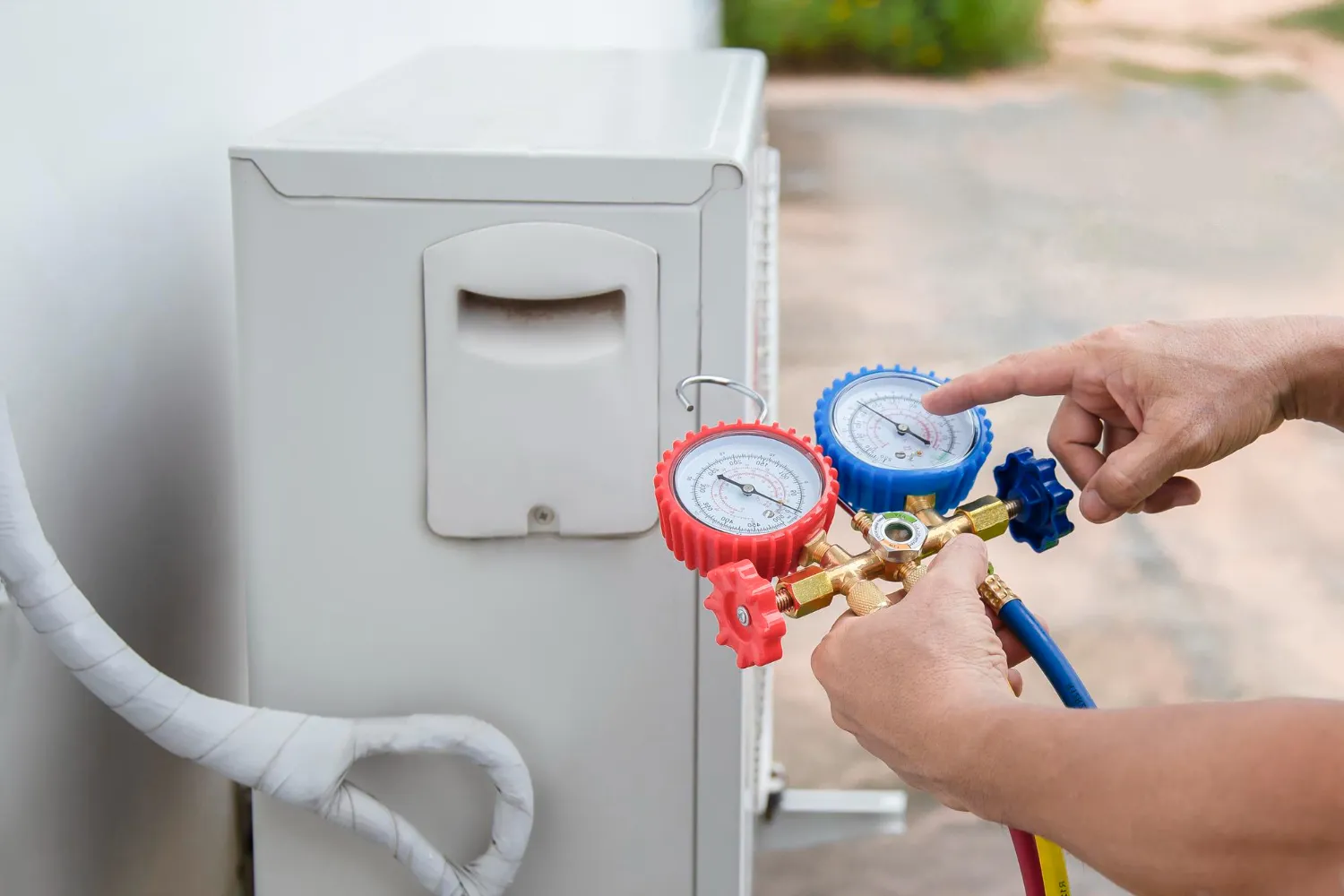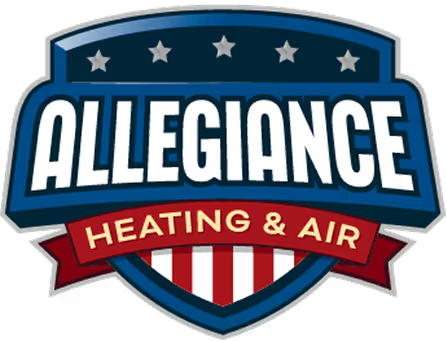
Understanding Commercial Air Filtration
In today's business world, the air within your commercial space is as vital as your products or services. Commercial air filtration plays a critical role in creating a healthy, productive, and safe environment for everyone who walks through your doors.
Here's a quick look at commercial air filtration:
- What it is: Specialized systems designed specifically for business environments. These systems clean the air within your facility.
- How it differs from residential units: Commercial systems are built to handle much larger spaces and higher levels of air contaminants. They are more durable and have greater capacity.
- What it removes: They effectively capture and remove a wide range of airborne pollutants. This includes common irritants like dust and pollen, as well as odors, harmful gases (like VOCs), viruses, and bacteria.
- Why it's important: By improving indoor air quality (IAQ), these systems protect the health of your employees and customers. They can boost productivity, safeguard sensitive equipment and products, and help your business meet important health and safety standards.
This guide explains how these systems work and why they are essential for your business.
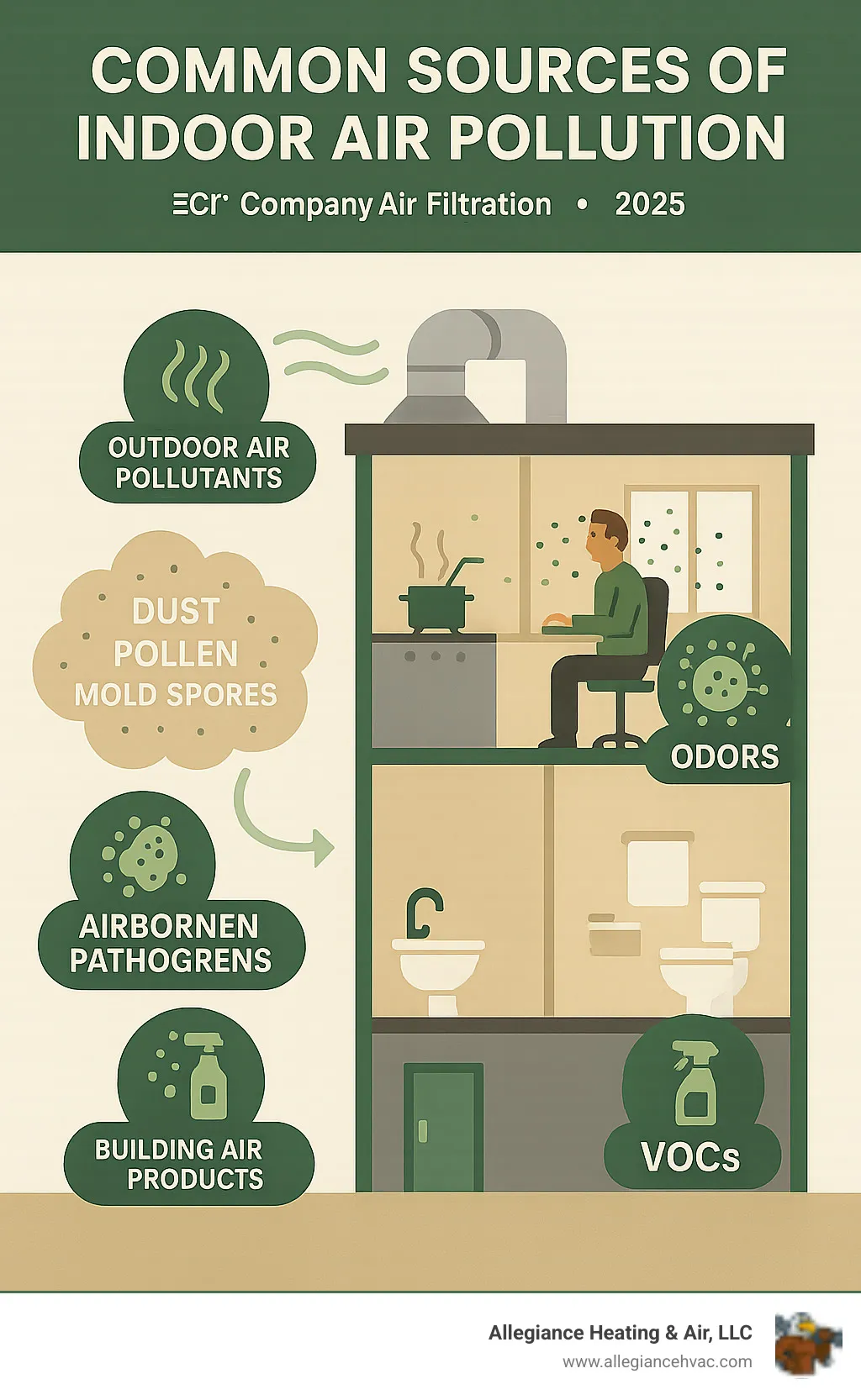
Why Clean Air is Your Business's Most Valuable Asset
We spend about 90% of our time indoors, where the air can be 2-5 times more polluted than outdoor air—sometimes over 100 times worse. For your business, this isn't just a statistic; it's a wake-up call that could be affecting your bottom line.
A stuffy, stale-smelling office can cause Sick Building Syndrome, a real condition that costs businesses through reduced productivity and discomfort.
Commercial air filtration isn't just about making your space smell better (though that's a nice bonus). It's about protecting your most valuable assets: your employees, your customers, and your reputation. When you invest in clean air, you're investing in the very foundation of your business success.
The good news? Improving Indoor Air Quality is one of the smartest moves you can make for your business.
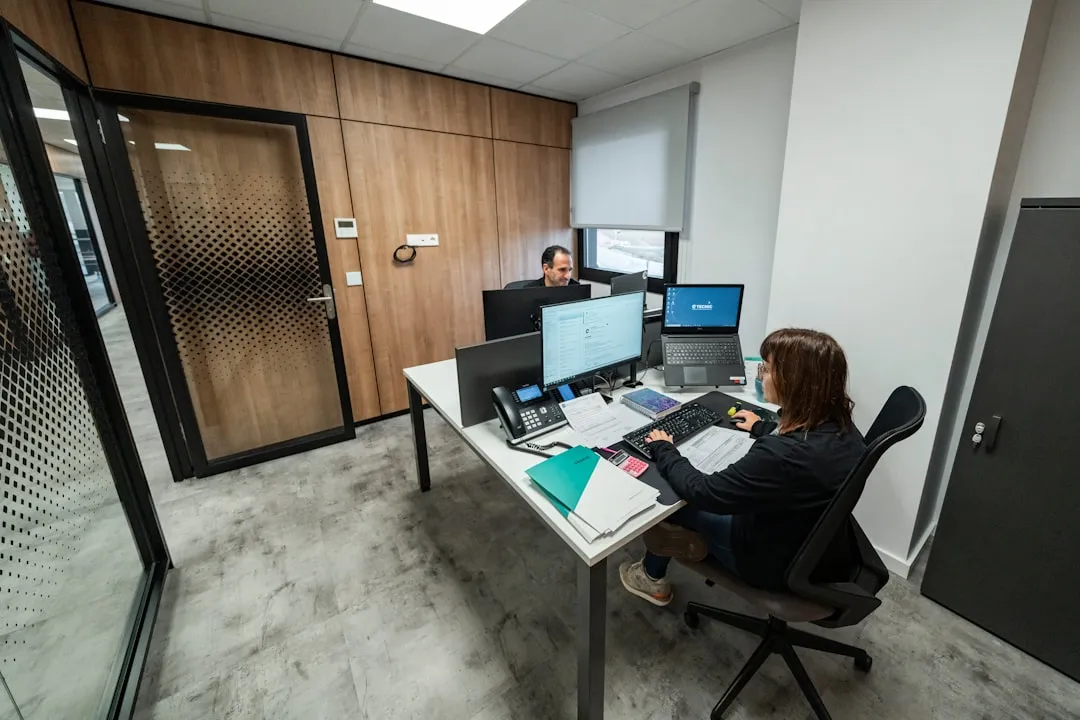
Boost Health, Productivity, and Your Bottom Line
Imagine your team arriving on Monday morning refreshed and focused, not sluggish from poor air quality. This isn't wishful thinking—it's the result of prioritizing clean air.
Reduced absenteeism is often the first benefit business owners notice. When your commercial air filtration system removes airborne irritants and germs, your employees simply get sick less often. Fewer sick days mean consistent productivity and lower healthcare costs.
For employees who suffer from allergies, clean air is life-changing. No more watery eyes during pollen season or constant sneezing from dust. Allergy relief means your team can focus on their work instead of their symptoms.
Studies show that improved air quality helps students perform better on tests. This boost in cognitive function can also benefit your employees as they tackle complex projects.
When people aren't distracted by stuffy air, strange odors, or that general feeling of discomfort, their focus naturally improves. Better focus leads to higher quality work, fewer mistakes, and increased productivity across your entire operation.
Protect Your People, Products, and Reputation
Clean air protection goes far beyond comfort – it's about safeguarding everything that matters to your business.
Your sensitive equipment needs clean air just as much as your people do. Dust and airborne particles can wreak havoc on computers, machinery, and electronics. When your filtration system keeps contaminants out, you're protecting your investment and avoiding costly repairs.
Meeting health and safety standards isn't just about compliance – it's about showing your employees and customers that you care. When you invest in air quality, you're demonstrating environmental responsibility and building trust with everyone who walks through your doors.
Whether you're welcoming customers, clients, or business partners, clean air creates a positive first impression. Protecting visitors and staff from poor air quality shows professionalism and attention to detail that people remember.
When allergy season arrives, you'll be glad you invested in quality air filtration. Our Air Quality Solutions for Allergy Season can help keep your space comfortable year-round.
Commercial vs. Residential: Why Your Business Needs a Specialized Solution
A common question is whether home air purifiers can work in an office. While cheaper, it's like trying to heat a warehouse with a space heater—ineffective and ultimately costly.
Commercial air filtration systems are built from the ground up for business environments, and the differences go way beyond just size. Think about it – your office has dozens of people breathing, talking, and moving around all day. A restaurant has cooking fumes and constant foot traffic. A manufacturing facility deals with dust and particles that would overwhelm any home unit in hours.
Key differences include system capacity (CFM), as commercial units move far more air. Durability is also crucial, as these systems run continuously and must handle higher contaminant loads from business activities.
Most importantly, commercial systems can integrate directly with your HVAC system to clean all the air in your building, while standalone commercial purifiers are still industrial-grade powerhouses compared to anything designed for your living room.
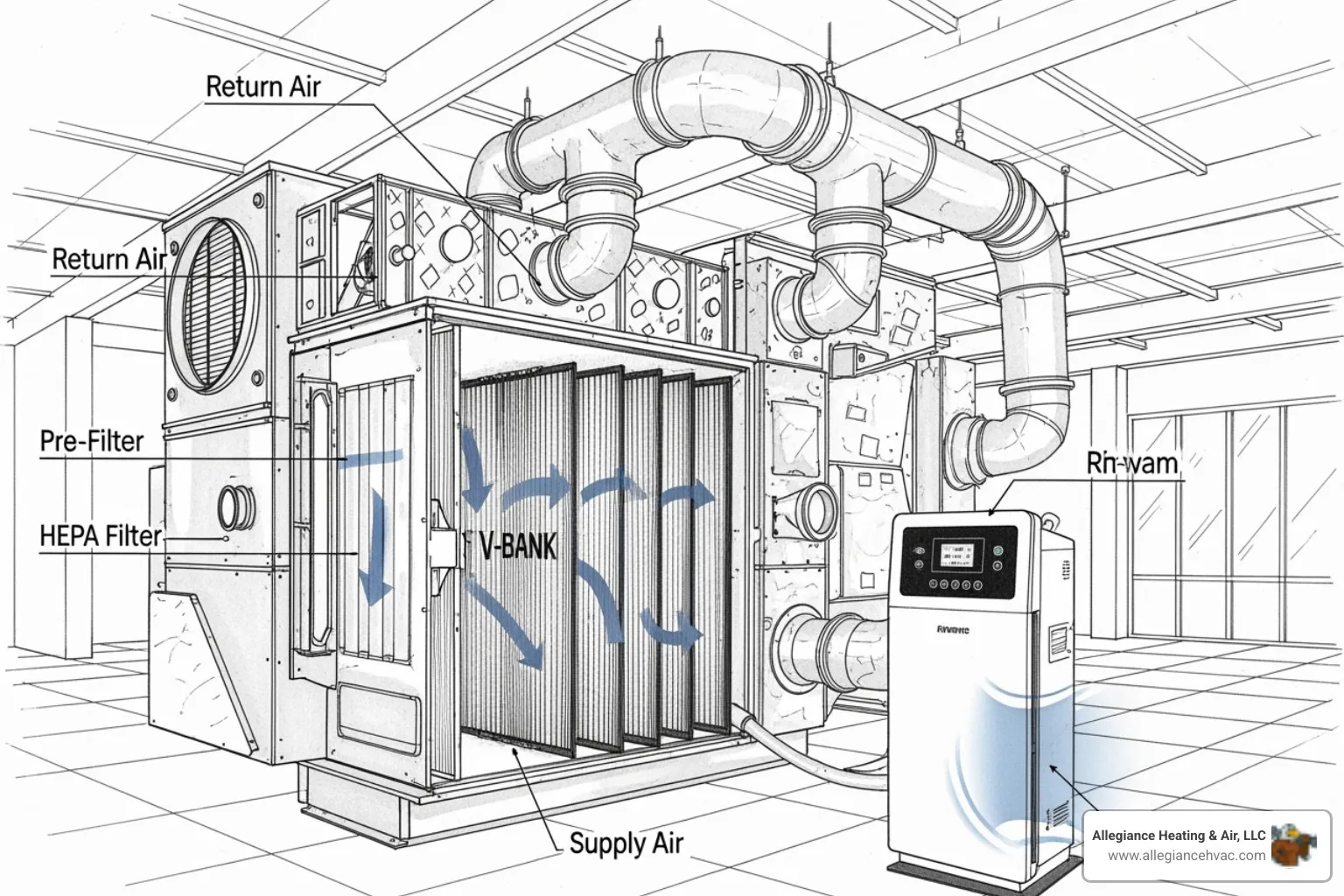
The Limits of Residential Air Purifiers in a Commercial Setting
Using residential purifiers in a business is like trying to cool a gym with a window AC unit—you'll work hard without making much progress.
The coverage area is the first problem. That purifier that works great in your bedroom simply can't handle an open office or retail space. The airflow rates are designed for small, closed rooms, not the constant air movement in commercial buildings.
The small dust-holding capacity of residential filters means they clog quickly, shortening the filter lifespan and leading to frequent, costly replacements.
But the real kicker? Residential units just aren't built to handle commercial pollutants. They're designed for pet dander and cooking odors, not the complex mix of cleaning chemicals, office equipment emissions, and high concentrations of airborne particles that businesses deal with every day.
Integrating Filtration with Your Commercial HVAC System
The smart approach to commercial air filtration is working with what you already have – your HVAC system. Instead of trying to purify air room by room, we can clean it at the source as it circulates throughout your entire building.
In-duct solutions are often the most effective approach. We install advanced filtration components right in your ductwork, so every bit of air that flows through your heating and cooling system gets cleaned before it reaches your workspace.
Sometimes we can upgrade your existing filter racks to accommodate much better filters, or install specialized filter banks that provide multiple stages of cleaning. This isn't a DIY job though – professional installation is crucial because the system needs to be perfectly sized and balanced to work with your existing equipment.
That's where system compatibility becomes important. We carefully assess your current setup to make sure any new filtration works seamlessly without overworking your HVAC system or restricting airflow. This protects your investment in your Commercial AC Systems for Offices while giving you the clean air your business deserves.
The beauty of this integrated approach is that it uses your building's natural air circulation to distribute clean air everywhere, creating a healthier environment for everyone who walks through your doors.
A Guide to Key Filtration Technologies
Commercial air filtration isn't one-size-fits-all. The right tool is needed for each job, whether it's office dust, manufacturing fumes, or healthcare germs.
We use multiple technologies designed for specific contaminants, from capturing particles and neutralizing gases to eliminating microorganisms.
Here's how the main filtration technologies stack up against different contaminants:
Filter TypeContaminants RemovedEfficiencyTypical ApplicationMERV-rated FiltersDust, pollen, mold spores, pet dander, lint, some bacteriaMERV 1-20 (higher MERV = higher efficiency)General HVAC filtration, offices, schools, retailHEPA Filters99.97% of particles 0.3 microns or larger (dust, pollen, mold, bacteria, viruses)Extremely high (0.3 microns standard)Healthcare, cleanrooms, laboratories, highly sensitive environmentsActivated CarbonOdors, Volatile Organic Compounds (VOCs), chemical fumes, gasesExcellent for gaseous contaminants, poor for particlesRestaurants, laboratories, manufacturing, offices with chemical useUV-C LightBacteria, viruses, mold spores (inactivates, doesn't capture)High for biological contaminantsHealthcare, schools, offices, any space concerned with pathogen spread
Capturing Particles: Understanding MERV, HEPA, and Industry Standards
When most people think about air filtration, they're thinking about particle filtration – catching all those tiny bits of dust, pollen, and other stuff floating around in the air. This is where MERV ratings and HEPA filters come into play.
MERV stands for Minimum Efficiency Reporting Value, and it's basically a report card for filters, rated from 1 to 20. The higher the number, the smaller the particles the filter can catch.
Lower MERV filters (1-4) handle the big stuff – think lint from clothing or large dust particles you can actually see floating in a sunbeam. They're basic, but they do their job for minimal filtration needs.
Mid-range MERV filters (5-12) are the workhorses of commercial filtration, capturing dust mites, mold spores, and dander. MERV 8-11 filters are a popular choice, balancing effectiveness and airflow.
High MERV filters (13-16) capture smaller particles like some bacteria and viruses. MERV 13 filters meet ASHRAE's minimum recommendations for improved IAQ, making them a popular choice for commercial spaces.
Then there are HEPA filters – the superstars of the particle filtration world. These powerhouses are certified to capture at least 99.97% of particles that are 0.3 microns in size. To put that in perspective, that's smaller than most bacteria and many viruses. When you absolutely need the cleanest possible air, HEPA filters are your best friend.
For a deeper understanding of how these different technologies work in practice, check out our guide on Different Types of Air Cleaners and Their Benefits.
Eliminating Odors and Gases with Molecular Filtration
Even the best MERV or HEPA filter won't do a thing about that lingering smell from yesterday's fish lunch or the chemical fumes from your cleaning supplies. For that, you need molecular filtration, and activated carbon is the star of this show.
Activated carbon has millions of tiny pores, creating a vast surface area. It works through adsorption, where gas molecules chemically stick to the carbon's surface instead of being trapped like in a net.
This makes activated carbon incredibly effective at removing Volatile Organic Compounds (VOCs) – those chemicals that off-gas from paints, furniture, office equipment, and cleaning products. VOCs aren't just annoying; they can cause headaches, nausea, and long-term health problems if left unchecked.
Whether you're dealing with cooking odors in a restaurant kitchen, chemical fumes in a laboratory, or that mysterious "office building smell" that seems to plague older buildings, molecular filtration systems neutralize these airborne pollutants at the source. The result? A fresh, clean-smelling environment that your employees and customers will actually want to spend time in.
Neutralizing Germs with UV-C and Advanced Oxidation
Sometimes you need to go beyond just capturing contaminants – you need to destroy them. That's where germicidal technologies like UV-C light and advanced oxidation come in.
UV-C light works like a microscopic bouncer for your air system. When bacteria, viruses, and mold spores pass through the intense UV-C light (installed in your HVAC ductwork or standalone units), their DNA and RNA get damaged beyond repair. They become inactive and can't reproduce, effectively neutralizing the threat.
While UV-C doesn't physically remove these microorganisms from the air, it renders them harmless. Some UV-C systems can neutralize up to 99.9% of airborne bacteria, viruses, and mold – making them particularly valuable in healthcare facilities, schools, and any business concerned about airborne illness transmission.
Photocatalytic Oxidation (PCO) goes a step further, combining UV-C light with a catalyst to create hydroxyl radicals. These don't just inactivate contaminants; they break them down into harmless water and carbon dioxide.
PCO offers a comprehensive approach to air purification, actively destroying a wide range of airborne contaminants rather than just capturing or inactivating them. It's like having a cleaning crew working 24/7 at the molecular level.
To learn more about how this cutting-edge technology can protect your business, read our article on Ultraviolet Air Cleaners for Improved IAQ.
How to Choose the Right Commercial Air Filtration System
Selecting the right commercial air filtration system is crucial. As a family-owned business since 2005, we know there's no one-size-fits-all solution; every business has unique needs and challenges.
The key to making the right choice starts with understanding your space inside and out. We always begin with a comprehensive space assessment that looks at your building's square footage, ceiling height, and how air naturally moves through your facility. A sprawling warehouse has completely different needs than a cozy dental office, and we take that seriously.
Occupancy levels are a huge factor. A busy restaurant with hundreds of customers generates far more airborne contaminants than a quiet office with ten employees.
Identifying specific contaminants is key. Whether you're dealing with office dust, manufacturing fumes, or healthcare pathogens, knowing what you're up against helps us choose the right technology.
Noise levels matter more than you might think. Nobody wants to feel like they're working next to a jet engine all day. Some environments, like libraries or meditation centers, need whisper-quiet operation, while a busy machine shop might not mind a bit more sound if it means better air quality.
Your industry-specific needs are perhaps the most important factor of all. Different businesses face vastly different air quality challenges and regulatory requirements. What keeps your employees healthy and your business compliant is unique to what you do.
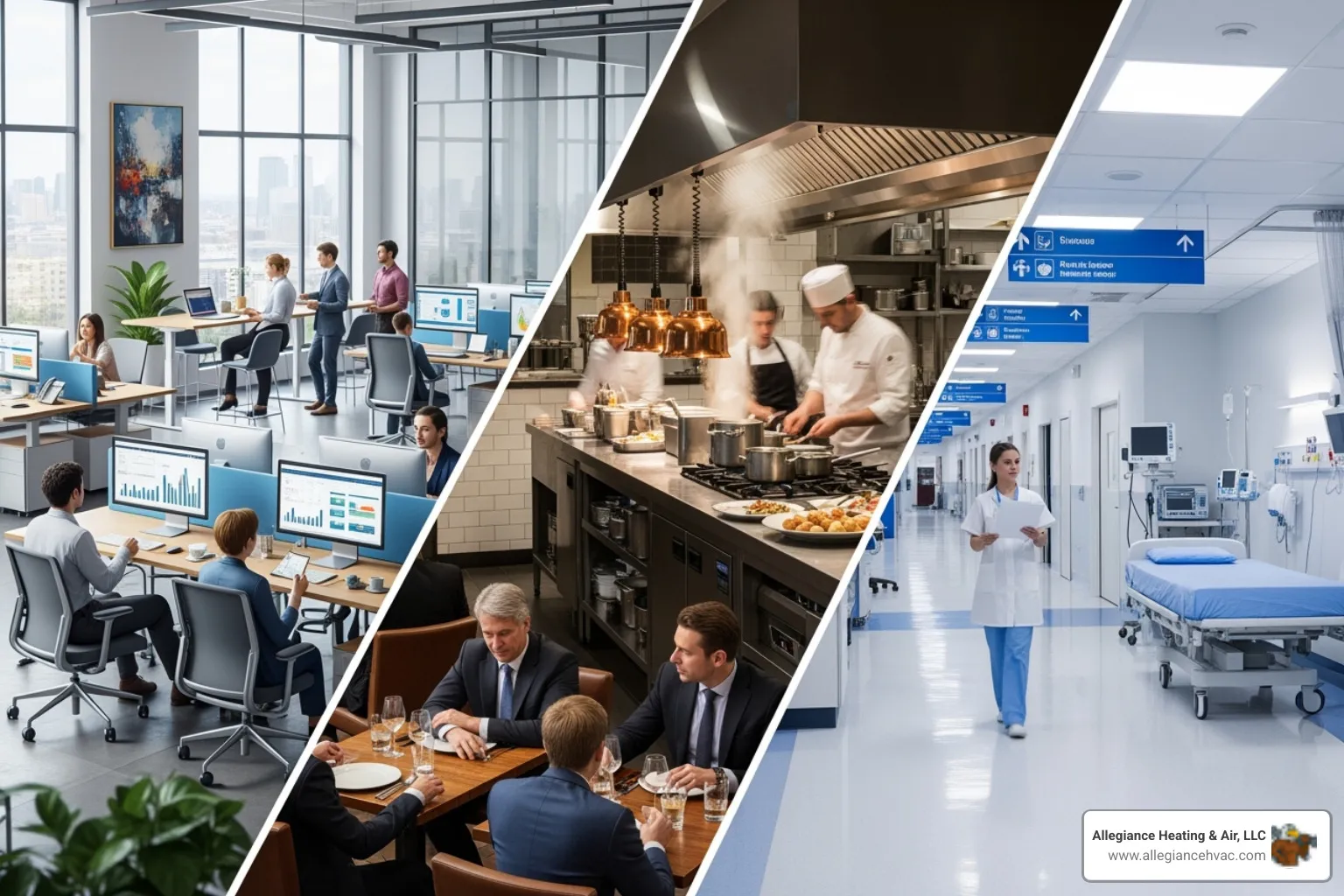
Matching the System to Your Industry and Environment
Every industry has its own "personality" when it comes to air quality challenges, and we've seen it all over our years in business. Understanding these differences is what separates a good installation from a great one.
Offices typically need systems focused on comfort and productivity, removing common allergens, dust, odors, and VOCs from supplies and cleaning products. Media air purifiers are often an excellent choice for these environments.
Healthcare facilities operate in a completely different league. Hospitals, clinics, and dental offices require the absolute highest standards of air purity. When you're dealing with vulnerable patients and need to prevent the spread of infections, HEPA filtration and UV-C sterilization become non-negotiable. These environments demand systems specifically designed to protect both patients and staff from airborne pathogens.
Manufacturing plants face some of the toughest air quality challenges around. Heavy dust loads, chemical fumes, and specialized particles from industrial processes require robust, high-capacity filtration systems. These environments often need specialized molecular filters to handle the unique cocktail of contaminants they produce.
Restaurants and hospitality businesses live and die by customer experience, and that includes how the air feels and smells. Nobody wants to eat dinner while breathing in yesterday's fish special or cleaning chemical fumes. Odor control becomes paramount, often requiring activated carbon filters combined with high-efficiency particulate filters.
Warehouses present their own unique puzzle – large, open spaces with significant dust, potential vehicle emissions, and varying temperatures throughout the day. Media air purifiers are ideal for these environments, handling the volume and variety of contaminants these spaces generate.
When we're helping you choose a system, we carefully evaluate several key factors: your square footage and required CFM (Cubic Feet per Minute) to ensure adequate air exchange, the right filter type and efficiency combination to target your specific contaminants, noise level requirements for your work environment, and maintenance requirements that fit your operational capabilities and budget.
Factoring in Long-Term Costs: Maintenance and Energy Use
Here's where we get real about the numbers – and we believe in being completely transparent about what commercial air filtration actually costs over time. The sticker price is just the beginning of the story.
Your initial investment covers the filtration system itself, whether it's a standalone unit or integrated with your existing HVAC system, plus professional installation. While it might feel like a significant upfront expense, we always encourage our customers to think of it as an investment in their business's health, productivity, and long-term success.
Energy consumption is where modern systems really shine. Today's commercial air filtration systems are designed with efficiency in mind, featuring EC motors that can be adjusted to increase air passage through filters without guzzling electricity. According to Energy.gov, even small efficiency improvements can reduce energy consumption by 5 to 15 percent or more each year on your utility bill, and efficient filtration actually contributes to your overall HVAC system's performance.
The filter replacement schedule is a major ongoing cost that varies by environment. A clean office might need filter changes every six months, while a dusty warehouse could need them monthly. High-quality filters can extend replacement intervals, saving you money.
This is why professional maintenance plans make so much sense. Just like your HVAC system, your air filtration system performs best when it receives regular professional attention. Our maintenance plans ensure optimal performance, extend your equipment's lifespan, and help us catch potential issues before they turn into expensive problems. As a family-owned business, we're committed to building long-term relationships with our customers, not just making one-time sales.
Your Commercial AC Needs Professional Service, and the same principle applies to your air filtration system. Regular professional maintenance is the key to getting the most value from your investment.
Frequently Asked Questions About Commercial Air Filtration
When exploring commercial air filtration, business owners often have similar questions. After nearly two decades of experience, here are our answers to the most common ones.
How often do commercial air filters need to be changed?
This is probably our most-asked question, and honestly, we wish we could give you a simple "every X months" answer. But the truth is, it really depends on your unique situation.
Filter type greatly affects replacement timing. Basic disposable filters last about 30 days, pleated filters around 90 days, and advanced media filters can last up to a year, depending on use.
Your environment plays a starring role too. If you're running a woodworking shop or dealing with construction dust, your filters are going to fill up much faster than those in a quiet accounting office. We've seen businesses near busy roads or construction sites need changes twice as often as usual.
Operating hours matter as well. A system running around the clock will naturally accumulate more contaminants than one that only kicks in during business hours.
We advise against a strict calendar schedule. The best approach is a regular check by our technicians, who can create a custom replacement schedule based on your specific environment and budget.
Can air filtration really reduce the spread of viruses?
Absolutely! This question became especially important over the past few years, and we're happy to report that commercial air filtration can indeed make a real difference in reducing airborne viral particles.
High-efficiency filters are your first line of defense. Filters with MERV ratings of 13 or higher, and especially HEPA filters, excel at capturing those tiny particles that viruses often hitchhike on. These systems continuously pull air through the filters, reducing the concentration of viral particles floating around your space.
UV-C technology adds another powerful layer. While traditional filters trap particles, UV-C light actually inactivates viruses, bacteria, and mold spores by damaging their genetic material. It's like having a microscopic security team working 24/7 to neutralize threats before they can cause problems.
That said, air filtration works best as part of a complete approach. Think of it like wearing both a belt and suspenders – you want multiple safeguards working together. Good ventilation, proper hygiene practices, and quality air filtration create a much safer environment than any single measure alone.
What is the most important factor when choosing a commercial air filtration system?
The most crucial factor is matching the right technology and capacity to your specific needs. Getting this balance right makes all the difference.
Understanding your unique challenges comes first. Are you dealing with dust from manufacturing processes? Chemical odors from cleaning products? Concerns about illness spreading through your office? Each situation calls for different filtration approaches.
Sizing matters tremendously. Even the most advanced filtration technology won't help if the system can't process enough air for your space. We calculate the right CFM (cubic feet per minute) capacity based on your square footage, ceiling height, and how many people typically occupy the space.
Technology matching is where expertise really pays off. If your main issue is industrial fumes, you need robust molecular filtration with activated carbon. For preventing illness spread, HEPA filters and UV-C light are essential. For general office environments, high-quality MERV-rated filters often do the trick perfectly.
This is exactly why we always start with a thorough assessment of your facility. Rather than trying to guess what might work, we evaluate your specific situation and recommend a solution that delivers the best performance and value for your business. After all, commercial air filtration should solve your problems, not create new ones!
Conclusion: Invest in Clean Air for a Healthier Business
Commercial air filtration isn't an expense—it's one of the smartest investments for your business. Clean air touches every aspect of your operation, from customer first impressions to daily team productivity.
We've seen how businesses transform when they prioritize indoor air quality. Employees feel better, work more efficiently, and take fewer sick days. Customers notice the difference in comfort and cleanliness. Equipment lasts longer. And your reputation as a business that truly cares about people's well-being? That's priceless in today's market.
Science backs this up: when your team isn't distracted by stuffy air, odors, or allergies, their focus and cognitive function improve. Happy, healthy employees are productive employees.
After nearly two decades in this business, we've learned every commercial space is unique. What works for a restaurant won't suit an office, which is why professional guidance is essential.
At Allegiance Heating & Air, LLC, we've been part of the Greenville, IN community since 2005. We've helped countless businesses across Louisville, KY, Clarksville, IN, Sellersburg, IN, Jeffersonville, IN, and Floyds Knobs, IN create healthier indoor environments. As a family-owned company, we understand that your business is more than just a building – it's your livelihood, your employees' workplace, and your customers' experience all rolled into one.
We don't believe in one-size-fits-all solutions. Instead, we take the time to understand your specific challenges, assess your space, and recommend systems that make sense for your industry, your budget, and your goals. Because at the end of the day, clean air isn't a luxury – it's a necessity for any business that wants to thrive.
For a comprehensive assessment of your commercial HVAC and air filtration needs in Greenville, IN, contact our expert team today. Let's work together to create an environment where your business – and everyone in it – can breathe easy and succeed.
Contact Us Or Schedule Expert Service
Other Blogs
ready to transform your home?
Discover our exceptional home services tailored to meet your needs and enhance your living space.
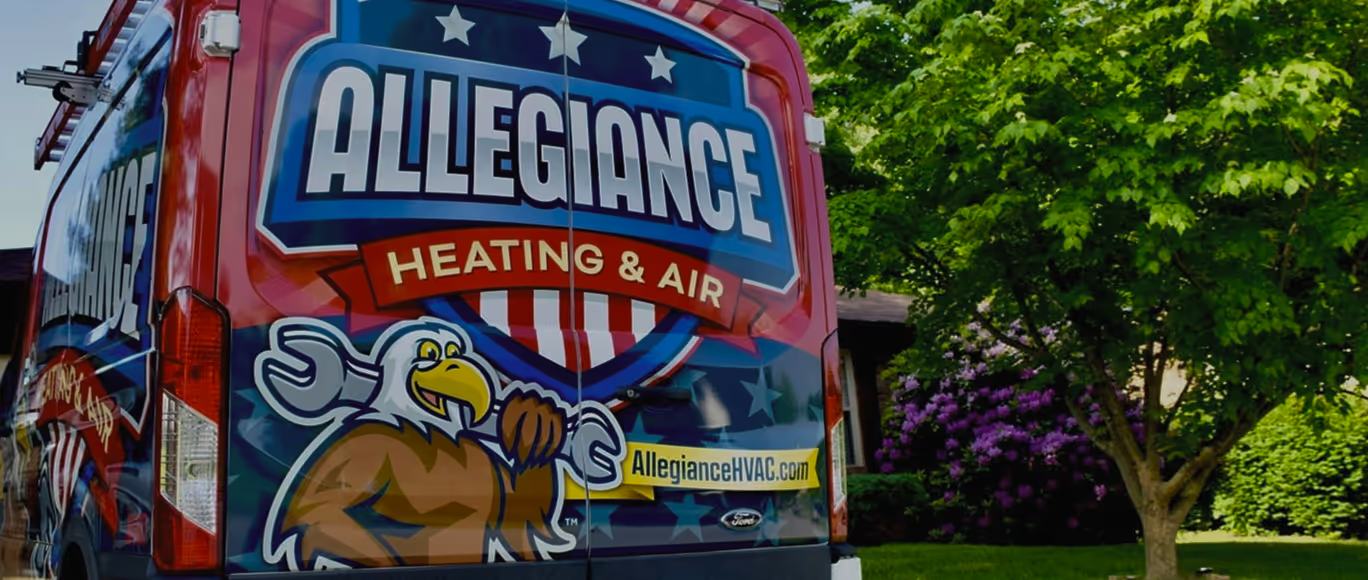
WHAT OUR CLIENTS HAVE TO SAY ABOUT US

RELATED ARTICLES
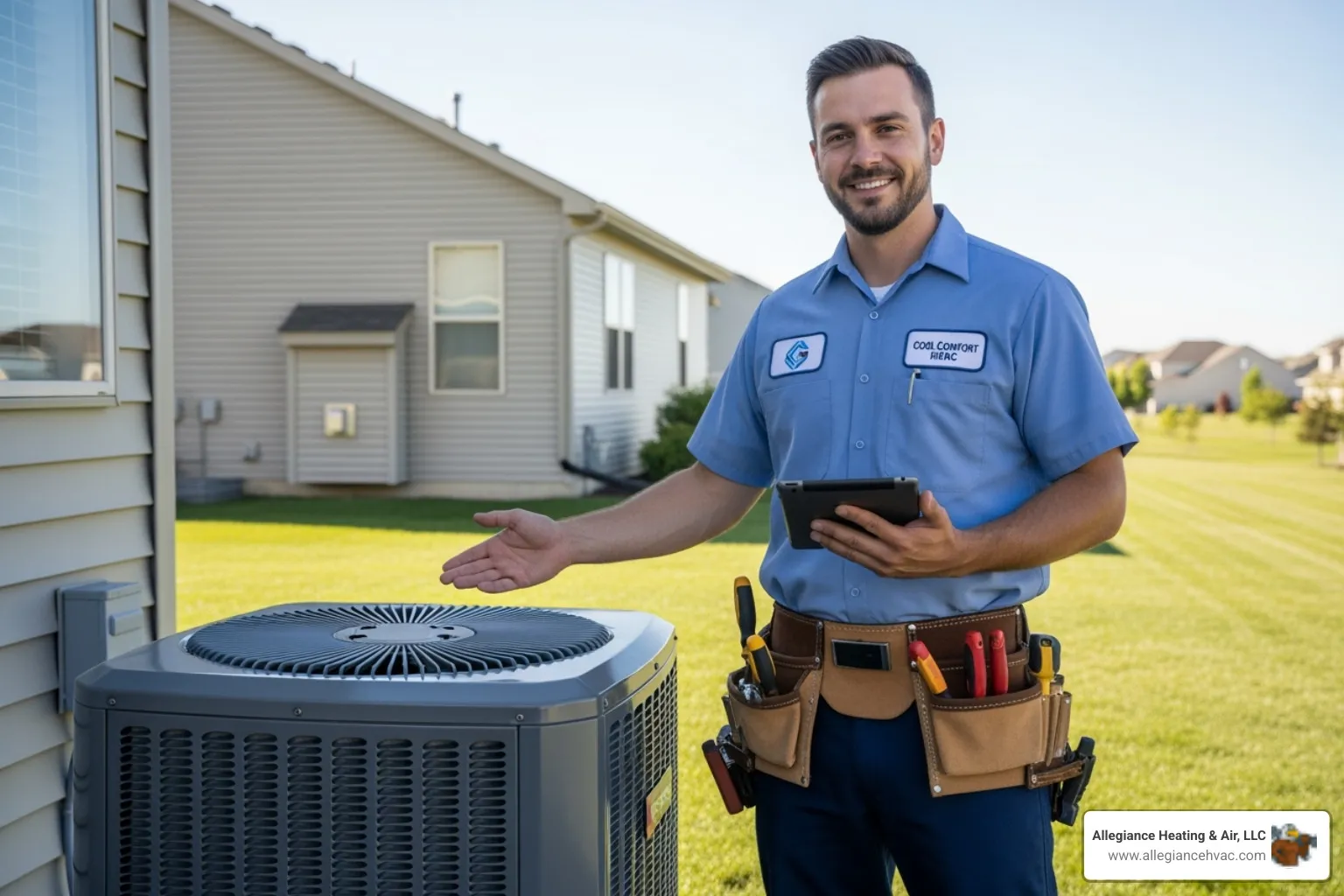
Beyond the Wrench: What Makes a Great HVAC Professional (and Why You Should Care)
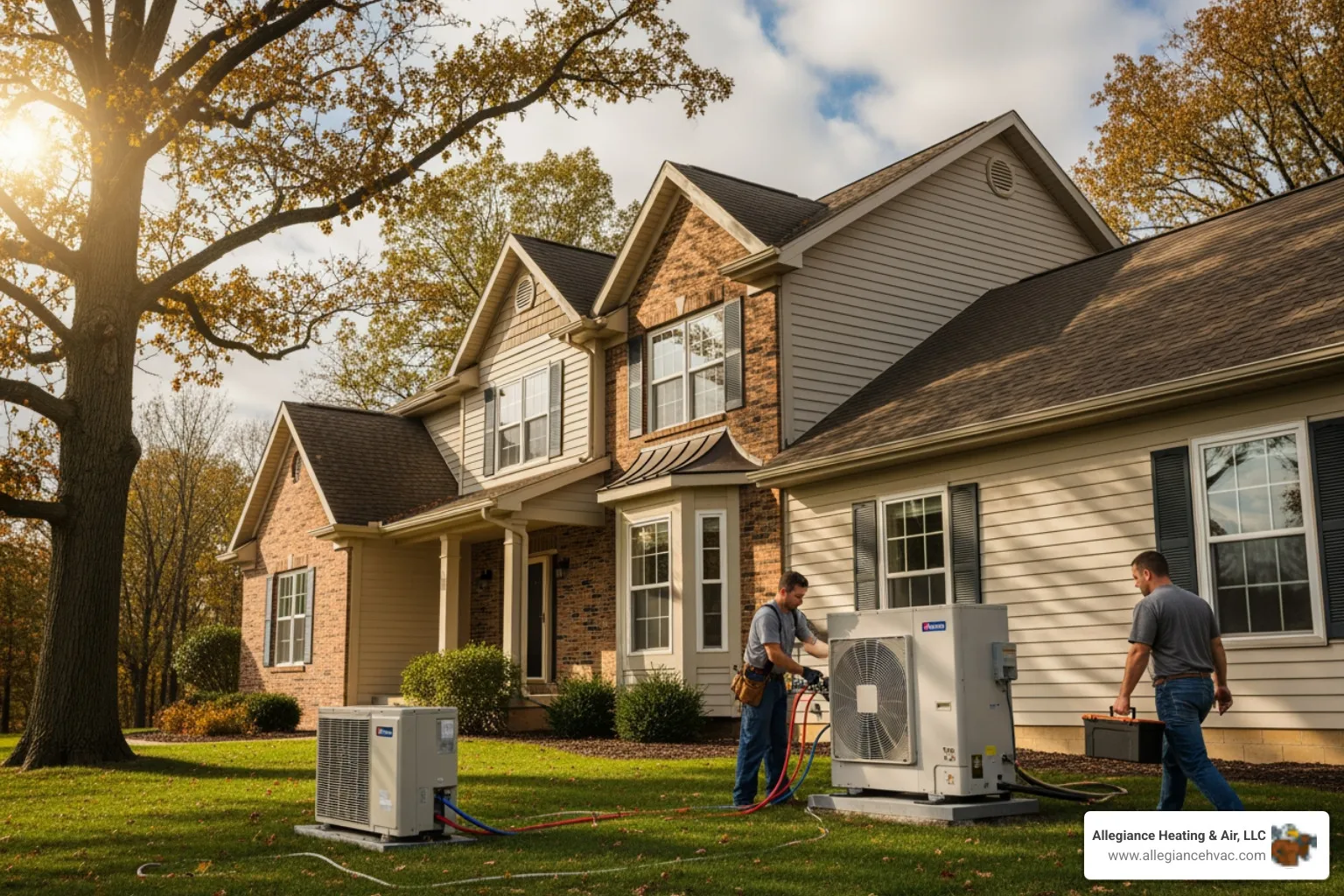
Upgrade Your Abode: Residential Heat Pump Replacement Services in Greenville
